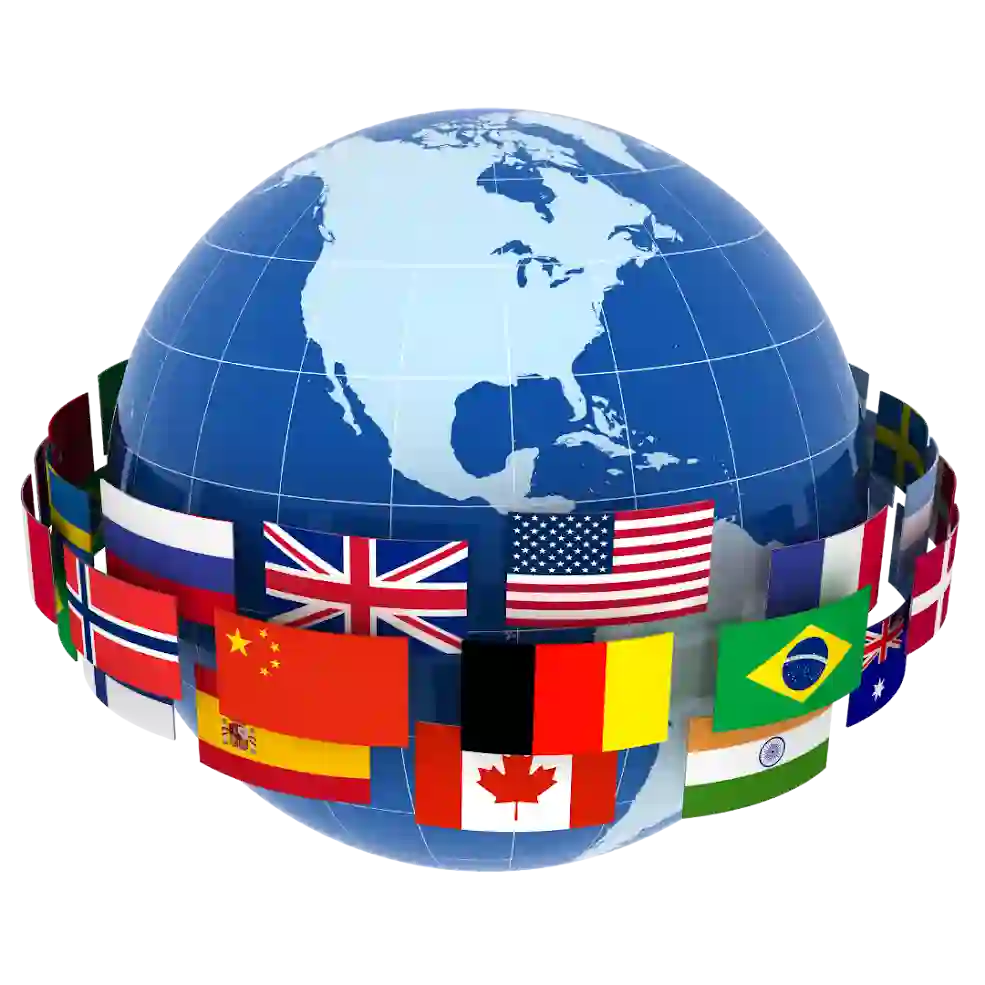Japanese Professional Translation
At Translinguo Global, we are a Japanese translation agency specialising in providing Japanese translation services for businesses and professionals looking for quality, accuracy and culturally appropriate adaptation of each project. We stand out for having native Japanese translators and certified professionals who guarantee that each translation meets the highest international standards.
We have a team of native Japanese translators who are experts in Japanese to English translation and English to Japanese translation, as well as professional multilingual Japanese translation services.
Japanese Professional Translations
Quality Assurance
ISO Certifications
More than 10+ years of experience in the industry
Japanese Native Translators
Japanese Professional Translation Service
At Translinguo Global, as a Japanese translation company, we offer a wide range of Japanese translation services to meet the needs of our clients, from Japanese to Japanese to Japanese translation in various fields.
Each of our projects is carried out by a professional Japanese translator specialising in the relevant field, ensuring an accurate and contextualised translation.
Japanese translations
At Translinguo Global, we understand that every translation project is unique. That’s why we offer a wide range of Japanese translation and Japanese translation services to suit your specific needs:
Thanks to our experience and dedication, our Japanese translations are accurate and tailored to each client’s needs.
Translation of texts from Japanese
We translate your texts from Japanese into any language, maintaining the tone, style and context of the original document. Our aim is for the translation to faithfully reflect the message of the source text.
Official Documents Translation
We offer official translation services for Japanese documents, carried out by official Japanese translators. These documents are valid for legal and administrative submissions.
Japanese Sworn Translation
We have certified and professional Japanese sworn translators for your Japanese documents. Sworn translations into English and sworn translations from Japanese.
Translation of texts into Japanese
If you need texts translated into Japanese, our team is ready to deliver high quality results, respecting the linguistic and cultural particularities of the language.
Japanese Technical Translation
Ideal for manuals, technical specifications and specialised documents. With our native Japanese translators, we ensure the highest level of accuracy.
Japanese Commercial Translation
Perfect for catalogues, brochures and marketing material. Internationalise your company in the Japanese market with a top quality Japanese translation.
Japanese Literature Translation
Our Japanese literary translation is ideal for books, articles and other literary content. Thanks to our native Japanese translators we ensure maximum detail.
Japanese Website Translation
Translating your website into Japanese has never been easier. We ensure the highest quality of your web content with our Japanese localisation and translation services.
Our customers
More than 1000 clients are multilingual thanks to our translation company.






Japanese Translation Agency
At Translinguo Global, we are ISO certified, which guarantees that our translation services meet the highest international quality standards. Not only do we offer Japanese translation services, but we also work with a wide range of other languages, allowing you to communicate effectively anywhere in the world.
Our Japanese translation agency is supported by a team of native Japanese translators. Unlike other translation service providers, we believe this is essential in order to deliver top quality work.
Urgent Japanese Translations
Get all your content translated into Japanese in much less time than you think and eliminate language limits.
Japanese Native Translators
All of our professional Japanese translators are native speakers and experts in different subject areas, ensuring accurate and culturally appropriate translations.
Best rates per Japanese word
Our Japanese translation rates are transparent and tailored to each client's needs.
Quality Assurance
With our ISO Certificates, we guarantee superior Japanese translation quality on every project.
What our customers say
EXCELENTETrustindex verifica que la fuente original de la reseña sea Google. Amazing service! Very professional and efficient team!Publicado enTrustindex verifica que la fuente original de la reseña sea Google. Excelente comunicación y servicio. De las más baratas que he encontrado.Publicado enTrustindex verifica que la fuente original de la reseña sea Google. Es la segunda vez que trabajo con ellos y estoy encantada. Los recomiendo muchísimo. Gran atención al cliente, buena comunicación, rapidez del servicio y envío hasta las Islas Canarias, un servicio impecable! Gracias a Andrés y Alba quienes me atendieron. Definitivamente la mejor agencia en España.Publicado enTrustindex verifica que la fuente original de la reseña sea Google. Muy buenos profesionales. Traducciones completas, sin fallos, oficiales y en el menor tiempo posible. Les doy las gracias especialmente a Alba y Andrés por su buena atenciónPublicado enTrustindex verifica que la fuente original de la reseña sea Google. He contactado con Andrés y Alba para la traducción de unos documentos y son super eecomendables, además de ser muy amables y con una comunicación muy fluida en todo momento han sido muy rápidos en hacer las traducciones. Sin duda los recomiendo.Publicado enTrustindex verifica que la fuente original de la reseña sea Google. Muy Buen trato y todo correcto envio trámites de traducción jurada rapido y seguros gracias a Andrés y AlbaPublicado enTrustindex verifica que la fuente original de la reseña sea Google. Extremadamente satisfecha con el servicio. Super eficaces! Muchas gracias.Publicado enTrustindex verifica que la fuente original de la reseña sea Google. Buena experiencia, documentos entregados con rapidez. Alba y Cannelle me atendieron siempre muy atentas y muy profesionales, totalmente recomendado el servicio y por supuesto su servicio al cliente es excelentePublicado enTrustindex verifica que la fuente original de la reseña sea Google. ¡Muchísimas gracias por sus servicios! Un equipo muy agradable, ¡un agradecimiento especial a Andrés!Agradecimientos especialesDavid y Cannelle !!!
Japanese translators
Our Japanese translation service starts with an initial assessment of your needs and requirements. We then assign your project to the most appropriate Japanese translator or team of professional Japanese translators for your document type and target language.
Throughout the process, we maintain open and direct communication to ensure that any adjustments or feedback are handled efficiently.
Japanese Translation Rates
We understand the importance of price transparency, which is why we offer a competitive Japanese translation rate and Japanese translation rate to suit your needs. Furthermore, our Japanese per-word pricing is clear and fair, ensuring that you only pay for the work done.

Japanese translation (FAQs)
How much does a translation from Japanese to English cost?
The rate for Japanese translations depends on several factors, such as the length and complexity of the text. We offer a competitive rate per Japanese word, always ensuring the highest quality for each project.
How long does a professional Japanese translation take?
Delivery times vary depending on the volume and complexity of the text. At Translinguo Global we work to offer fast turnaround times without compromising quality.
Do you offer Japanese sworn translations?
Yes, we provide Japanese sworn translations for documents requiring official certification.
What kind of documents can you translate into Japanese?
We can translate all types of documents, including legal, technical, commercial and literary texts. Our professional Japanese translators are able to handle any type of content.
Which certifications guarantee the quality of your translations?
We have ISO Certificates that ensure the quality and accuracy of our translations. In addition, each translation undergoes a rigorous review process before being delivered.
What makes Translinguo Global a reliable Japanese translation agency?
We are a Japanese translation agency with ISO certificates that guarantee the quality of our services. Our Japanese translators are native speakers and professionals with extensive experience in different sectors, which guarantees accurate and culturally appropriate translations.
Do you offer official Japanese translation?
Yes, we offer official Japanese translation for documents requiring certification. Our certified translators ensure that each translation complies with legal and official requirements.
Do you offer specialised Japanese translation services?
Yes, we offer Japanese legal translation, Japanese technical translation, Japanese business translation, and other types of specialised translation. Each project is assigned to a translator with experience in the specific field.
Do you offer online translation of Japanese texts?
Yes, we offer an online Japanese translation service to facilitate the process for our customers. You can send us your documents digitally and receive the translation quickly and efficiently.
How can I get a quote for a Japanese translation?
You can request a Japanese translation quote directly from us. We will assess your needs and provide you with a personalised proposal based on the Japanese translation rate and the volume of the project
Do you have a team of professional Japanese translators?
At Translinguo Global, we excel in providing Japanese translations by certified professional Japanese translators. Each professional Japanese translator is an expert in their field and a native speaker of the target language, ensuring that the translated texts maintain the same quality and clarity as the original. In addition, we cover multiple language combinations:
- Japanese-Spanish translator and Spanish-Japanese translator for companies that need a presence in Spanish-speaking markets.
- Japanese French translator, Japanese German translator, Japanese English translator and vice versa, for companies with multilingual needs.
- Traductor japonés alemán y traductor japonés inglés, servicios muy demandados por empresas en sectores industriales y comerciales.
Quote for Japanese Translation
Request your free Japanese translation quote. Send us your file and we will get back to you within 24 hours.

